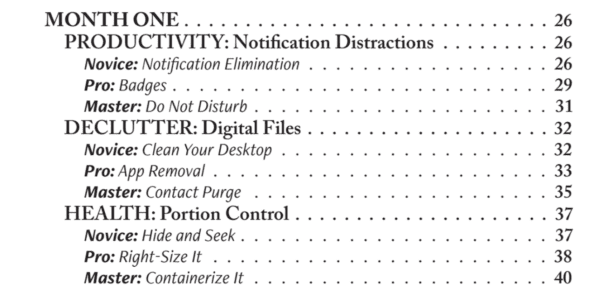Multitasking, Switchtasking, Background Tasking, or Hypertasking. Which types of multitasking are you guilty of?
Do you work at a company that still uses multitasking as a quality that they want in an employee?
Do you have difficulty focusing on one task at a time or feel constantly pulled in multiple directions?
Multitasking has a negative impact on productivity.
I’m sure you must be thinking! Oh yeah, I can easily multitask!
But only two percent of people can multitask effectively; chances are, you aren't one of them. As people learn more about the decreased productivity contributed to multitasking, we can only hope it becomes more culturally unacceptable behavior. Multitasking can reduce productivity by up to forty percent. I'm not suggesting you will never multitask (I'm human, and if you're reading this, you are too). But remember that if you're genuinely trying to learn something, you need 100% attention. I tell my Human Resource clients that if their job descriptions still require multitasking skills, they say their company doesn't know current research and is looking for someone who takes 30-40% longer to complete a task.
Background Tasking can be beneficial if done in the right way.
Not all types of tasking are bad and can sometimes even be beneficial. Background tasking can be efficient and make time go by faster when you need a distraction. Examples of background tasking are watching TV while exercising or listening to the radio while driving. Studies have shown that certain types of music can make people exercise harder. This type of Background Tasking is also well explained with examples and research by Nir Eyal (Author of Indistractable) in his article ‘Surprise! There’s a right way to Multitask’:
Sometimes one task can encourage us to do another, called “temptation bundling”—a super-effective motivation hack. The term was coined by Katherine Milkman at the University of Pennsylvania’s Wharton School, who ran a study in which participants were given an iPod loaded with an audiobook they could only listen to at the gym. Those participants made 51% more gym visits than the control group.
I catch up on podcasts while cooking, cleaning, and exercising. Here, I'm reading my Kindle while hula hooping!
Hypertasking can be good or bad, depending on how we do it!
Hypertasking is when work multitasking gets carried over into your personal life or can also be doing two things simultaneously, which is dangerous. Examples are texting on the phone while driving, which is six times worse than driving drunk, or looking at your phone while crossing the street.
Switchtasking harms our productivity.
Switchtasking juggles two tasks by refocusing attention back and forth and losing time and progress in the switch. Switchtasking is the biggest problem for most people. We switch tasks more than we multitask because we can do it at such speed. We are under the illusion we are doing things simultaneously, but in reality, we aren't. If it involves the same part of the brain, like writing an email and talking on the phone, you can't do them effectively.
The average person spends three minutes working on something before they switch tasks. The biggest switchtasking culprit is email. Our productivity drops up to 40% when we are switchtasking between email and other tasks. As per a recent Microsoft study, 42% of participants multitask during meetings by actively sending an email or ping—and that doesn’t include practices like reading incoming emails and pings, working in non-meeting files, or web activity.
The good news is that there are many ways to manage switchtasking at work, and we have training programs dedicated to rethinking and revitalizing employee productivity.
Switchtasking is the hardest habit to break. Start with one project or task at a time and fully focus. Close out your tabs and use a program like Freedom** to save yourself from yourself. We list other recommended tools to improve your productivity here.
Based on the awareness of different types of multitasking, what kind of behavior would you like to stop and start in your life?
Post written by Marcey Rader and Rijul Arora.


